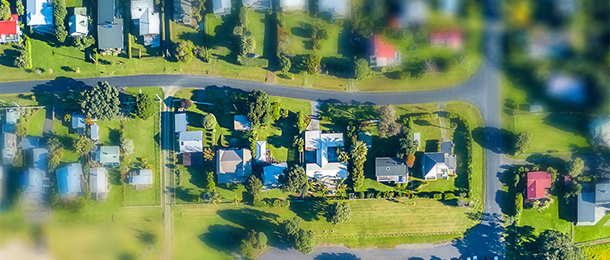Real estate debt as an investment opportunity will continue to grow due to the withdrawal of the major banks in this space and offer high single digit returns despite the COVID-19 driven market downturn, according to a real estate investment manager.
Alceon head of real estate and portfolio manager Damien Cronin said large retail banks in Australia were restricted by regulation as to the type and scale of loans they can provide to real estate developers which continued to create opportunities for non-bank lenders.
“From the global financial crisis (GFC) onwards, banks in Australia have pulled back from financing real estate development and their market share has dropped, and non-bank lenders have stepped in to take up the demand.
“The non-bank share was around 5 per cent, but since the GFC and the banking restrictions which followed it, that has doubled to 10 per cent but is below the global benchmark of 15 to 20 per cent.
“In Australia, this type of lending is an immature market where the opportunity set is high, particularly as bank appetite for real estate development loans has waned even further due to COVID-19.”
Cronin said real estate debt investments, which are based on repayments of loans made by non-bank lenders to real estate property developers, were still sound as they were secured capital and were the first investors to be paid returns and capital and were the least likely to lose capital in the event something went wrong.
He added this position did result in a lower relative return compared to other investors with more risky positions in a development but still generated a more reliable income stream than equities and fixed interest investments in the current market.
Omar Khan, portfolio manager and executive director at Freehold Investment Management, which utilises Alceon as a sub-manager, said while term deposits were returning around 1.5 per cent per annum and Australian shares were providing yield of around 4 per cent per annum, the Freehold real estate debt fund has returned 8.63 per cent per annum.
Khan said this was possible because the fund took a conservative loan to value ration of 54 per cent and 98 per cent of the fund was invested in first mortgages which means the vehicle, and its investors, would be paid first if any development got into trouble.
Cronin said this approach meant Freehold and Alceon remained comfortable in their ability to continue to provide stable returns in the next year.
He pointed out at the outset of the pandemic, predictions for the decline of real estate returns varied from 5 to 30 per cent but as the health performance and stimulus packages started to have an impact, this has firmed to around 10 per cent.
“The negatives that are playing out are lower overseas immigration and the unemployment rate climbing but the positives are historically low rates and the home builder stimulus packages from the federal and state governments.
“It is not our view the decline will go to 15 per cent and given our approach to real estate debt we could still sustain a 40 per cent decrease before we saw any impairment on the portfolio.”


